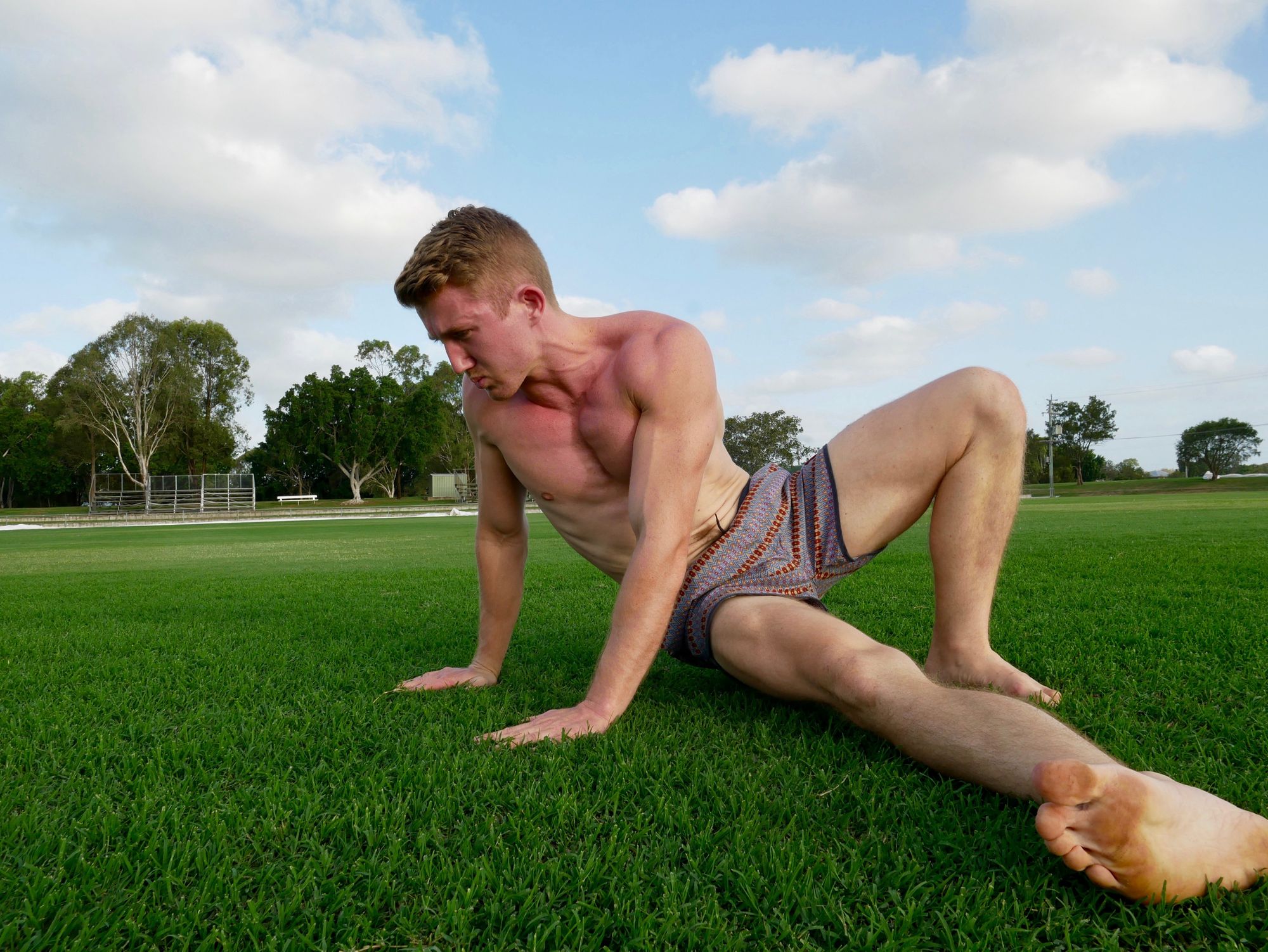6 Facts You Should Know About Losing Weight and Keeping it Off
Health doesn't have to be hard. Follow these health habits and you'll have no option but to get lean and stay lean.

So you want to get shredded?
Or maybe it’s a few months into the year and your New Years resolution to lose weight isn’t tracking too well. I’ve been there.
It doesn’t matter what time of year it is. There are things you can do all year round to get lean and stay lean.
Screw the 8-week challenges. Think 80-years instead.
Screw the stomach surgery. You don’t need it. No one should need it.
I grew up as an overweight teenager. I used to be scared in gym class to take my shirt off.
Scared to walk around a shopping centre because my t-shirt was hugging my man boobs.
I’ve been lean for the past 7-years. I’m not going back.
I know you’re in a hurry. So we’ll look at the things which offer the biggest benefits.
1. There is no best diet
I’ve tried them. Vegan, vegetarian, paleo, keto, low carb, high carb. You name it.
They all work. I felt better on some than others. And you’ll be the same.
Nutrition science is still very guess and check when it comes to each individual.
The most universal protocol I’ve found (and the one I stick to) is to consume a wide range of minimally processed foods and only eat when you need to.
What does this mean?
It means avoiding anything which has been made in a facility where people are required to wear white coats.
It means avoiding anything your great great grandparents wouldn’t recognise as food.
It means swapping calorie counting for eating in a time restricted window. This means for a certain number of hours in the day, you don’t eat anything and only consume water. In the window? Eat. Out of the window? Don’t eat.
A quick example.
6:00 am wake up.
6:00 am — 12:00 pm consume nothing but water (black coffee/tea okay but avoid any sweeteners).
12:00 pm — 8:00 pm consume whole food diet (meats, nuts, plants, oils or whatever suits your needs, refer to 1).
8:00 pm — 6:00 am consume nothing but water (coffee/tea not okay because the caffeine will interrupt your sleep pattern, more soon).
Is this a one-size-fits-all example? No. You can mix it up to suit your needs. Aim for a minimum 12-hour fasting window every day.
For more on food, I recommend Michael Pollan’s book, Food Rules. After doing a nutrition and food science degree, Pollan’s short book is the most concise resource I’ve ever found on the topic.
2. Snacking is a myth
There is no chance our ancestors would’ve made it through the past 100,000 years of homo sapien existence if they required a small delicate meal at 10:00 am and 3:30 pm to survive.
What makes you think you’re any different?
Avoid snacking. Eat whole food based meals at well-spaced intervals.
If you find yourself craving something at a certain time every day, you’ve created a habit. Your body has become a custom to an influx of energy/mouth pleasure at a certain time.
If you must cave, stick with the protocol above. Nothing outside of your fasting window but if you’re within it, whole foods only.
3. Be prepared
‘How do you have time to make that?’
‘I do it in batches.’
‘I don’t know if I’d have the time to do all that.’
‘I cook on Sunday’s, Wednesday’s too if I’m running out.’
I work in an office. The artificial lighting and air conditioning combination aren’t ideal for human physiology so I have to make sure I’m prepared.
By prepared, I mean having meals ready which follow the whole foods protocol so I can avoid falling into the trap of eating out.
Most food you can buy premade these days is garbage. Actual garbage.
Take the time to learn about food and how to prepare it. If not for your own health, for the health of your children.
How you live affects your genes. And how you eat is a big part of life. Your genes will be passed onto your offspring.
I was teaching at coding camp once. All the kids were aged 8–14.
On the first day, one of the parents came up to us and said her child had learning difficulties. She was right. He had trouble concentrating in class.
Then lunchtime came and I sat down to talk to some of the kids. He was there.
I watched him open his lunchbox.
‘What are you having for lunch Thomas?’ (name changed)
‘Pizza, chicken nuggets and Nutella sandwiches!’
Learning difficulties explained.
This kid was trying to run a fuel-hungry developmental brain off garbage. Actual garbage.
Preparing and cooking your own food and your child’s food not only forces you to learn more about food, it reduces the number of decisions you have to make when Sally from HR comes in and asks you if you want to go to that burger shack down the road. Thank you for the offer Sally. But no.
4. Bad sleep is making you fat
‘I can operate fine on a few hours of sleep.’
Is the equivalent of…
‘I haven’t had that much to drink, I’m fine.’
When was the last time you got a proper 8-hours sleep?
Not one night either. A week’s worth. How about a month’s worth?
Of course, there will be times where this is not possible. Newborns. Dogs barking. Garbage trucks arriving at 4:37 am. Hopefully they’re carrying half the food you find available in shopping mall food courts.
But the default for sleep should be trying to hit the right quantity as well as quality.
For most people (99%+), 7–9 hours of sleep is where you want to be.
There isn’t one bodily process sleep doesn’t affect. Including the hormones which regulate appetite and hunger.
If your sleep is poor, your hormones will be as unbalanced as the table you sat at last Sunday for brunch. You know the one you had to stick napkins under to fix. Then when it was level, you looked up at the waitress and said, ‘It’s all good, I got it.’ Then proved it with a little shake.
So you’re starting to see what happens here.
Poor sleep equals poor hormone regulation equals cravings for more foods equals distrusted sleep because of non-ideal food intake. The circle repeats itself.
‘Yeah, 7–9 hours, I get plenty of sleep but I’m still tired.’
The quantity is there, how’s your sleep quality?
Have you avoided caffeine 6-hours+ before bed? Caffeine has a half-life of 6-hours. That means half of it is still in your body after 6-hours. Caffeine blocks the natural adenosine build up that occurs in the body during the day. But a build-up of adenosine at the end of the day is good. Because once it hits a certain threshold, it triggers the release of melatonin. Melatonin is like the starting gun for sleep.
Too much caffeine later in the day equals a blockage of adenosine which leads to a lack of release of melatonin so sleep initiates but doesn’t start properly for a couple of hours.
Avoid caffeine after 1 pm (earlier if you can).
What about a dark room? Are all the standby lights off?
We evolved sleeping under the stars or in dark caves. Because of this, we’re very sensitive to any kind of light source. Even the smallest light in your room can affect the quality of your sleep.
Turn on all the night mode settings on your devices and remove all light sources in your room when it’s time to sleep. The darker the better.
For more on sleep, Matthew Walker’s book, Why We Sleep, is the absolute gold standard.
5. Gym memberships cost but movement is free
You already know the benefits here. It’s usually the first thing you hear about when people say they’re going to get healthier.
I’ve put it here because when it comes to health, sleep and food are the cake and the icing, movement is the cherry on top. Ironic using a cake example in a health post. But you get it.
The healthiest cultures in the world don’t have gym memberships. Instead, their days are intertwined with movement.
Movement. Not exercise.
Exercise is great. Really great. But if you’re looking to make a change focus on movement first.
People get scared of exercise because they went to one session, got blown out of the water by some guy who runs marathons and bench presses like a truck then woke up the next day feeling as if they were hit by a bus.
Start by making small changes and gradually increase them.
Simple movement hacks:
- Take the stairs. Always.
- 10-minute walks after every meal.
- Got a phone call to make? Walk and talk.
- Bringing groceries in? Do 6 trips instead of 1.
- Catch the bus or train? On Friday’s you get off a stop early and walk the rest.
Once you’ve started to learn more about your food intake, improved your sleep and added a little more movement to your day, then you might want to look into stepping it up. Maybe one day you’ll be the one running marathons.
6. Break the rules
After doing it for 7-years, it’s easier for me to eat well, move every day and get quality sleep than it isn’t. The principles above have been ingrained into the habit region of my brain.
But it didn’t start out like that.
There were plenty of times where I ate poor food. Where I missed a day at the gym. Where I stayed up until 3:00 am scrolling through Facebook and Instagram before waking up at 7:00 am.
Sally comes around every dam Wednesday. She loves those burgers.
The benefits of having health habits built into your day to day is being able to say, ‘You know what Sally, I’ll come.’ Because you know where your default is.
Life happens.
But don’t use it as an excuse every day. Health habits don’t build themselves.
Saying it like this makes staying healthy sound bad. It’s not. It’s natural. It’s biology. It’s what your DNA is screaming for.
After all, if you don’t have your health, what do you have?
For those who are more visual learners, there’s a video version of this article on YouTube.
